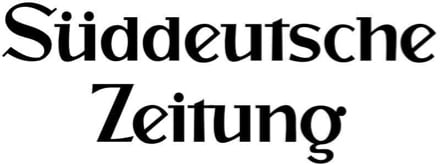Diligence, creativity, compassion, integrity, persistence, intelligence, justice — these core values define us at Mondex. Driving their expression is the fact that unresolved cases of Nazi-era theft still exist today in the tens of thousands. When resolved, each one of these cases has the potential to heal.
Diligence, creativity, compassion, integrity, persistence, intelligence, justice — these core values define us at Mondex.
A legal basis was created during the Holocaust for the dispossession of rights and property, and many in the art world profited. The provenance of works that were misappropriated was frequently obscured, as were subsequent sales channels, so identifying the looted art was a challenge. Then came the difficulties involved in getting that looted art back. But this situation changed at the end of the last century thanks to the 1998 Washington Conference on Holocaust-Era Assets. In his opening remarks at the conference, Nobel Peace Prize laureate Elie Wiesel described how, in the years after the Second World War, many Holocaust survivors were focused solely on rebuilding their lives. Making material demands for restitution was simply not a priority. What Wiesel identified as our moral obligation to these survivors and to those who have passed away — ‘to memory and identity, the link of families to their roots and repairing an historic injustice’ — inspired the Washington Principles that came out of the conference.
the Washington Principles
Endorsed internationally, the Washington Principles were meant to guide negotiations regarding the restitution of looted art and other cultural property.
- Property that the Nazis had seized and not restituted should be identified.
- Records should be made accessible, and archives opened.
- Raising awareness should be top of mind, so that the effort to identify property would be ongoing and publicizing artworks and other cultural assets would help to locate heirs.
- These heirs, the families of pre-war owners, should be encouraged to come forward and make their claims known.
In 2009, the Washington Principles were reconfirmed with the signing of the Terezin Declaration, which attempted to secure international agreement on best practices regarding restitution. That both it and the Washington Principles won the support of the international community continues to be very encouraging. And yet eight decades after the end of the Second World War, unresolved cases abound. Even as technology opens doors, bureaucracy raises challenges. All too often, the ‘moral obligation’ that Wiesel identified is not enough on its own to bring about change.
Despite all this, we are learning. Mondex proudly identifies as a learning organization, which means we continually refine our methods and also share our research with clients. The work by its nature is personal. We exercise care in our examination of every aspect of the lives of the pre-war owners of looted artifacts, as well as their subsequent possessors, both before and after the National Socialist Party came to power. Learning more about the biographies of these people helps us find solutions that better deal with the injustices of the past. This is immensely meaningful, but so too are the cases where the search of an artwork or cultural artifact cannot be completed successfully. In these cases, the information we uncover for our clients helps shed light on their family histories and in that, there is healing too.


























